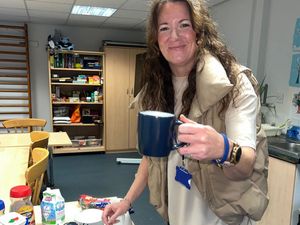Report outlines mental health cost of Covid-19 crisis in Telford
The impact of lockdown and the pandemic has been revealed in a report which outlines the mental health cost of the crisis.

A survey carried out by Healthwatch Telford & Wrekin details people's attitudes to the pandemic, and its effect, ranging from lockdown and access to medical services to frustration over panic buying.
One of the most obvious effects of the pandemic has been the increased use of technology, be that by people in their own homes, education, business, or government.
As workplaces closed down in March the use of digital meetings skyrocketed, while friends and family were unable to meet up physically they switched to use a number of popular video calling platforms such as Zoom and Facetime.
The findings show how 56 per cent of those responding managed to stay in touch with other people on a daily basis, with 90 per cent outlining how the communication had been beneficial for them.
The report details how digital technology has been a key part in enabling people to cope with the social isolation that resulted from lockdown.
It states: "The pandemic has meant that people have been faced with many challenges. Whilst only a small percentage of people have not struggled with the lockdown, many others have experienced physical, mental, and emotional difficulties.
"The one aspect people have felt the most difficult to deal with is the lack of social interaction, as people have struggled to adapt to self-isolation and not being able to socialise with loved ones and friends.
"Lockdown has affected people’s mental and emotional wellbeing, bringing fear and anxiety for many. However, regular contact with others via digital technology has been valuable and has helped people to cope."
While the report found that people had adapted to use technology to cope with social isolation, it did find that there was concern over the clarity of government guidance on what the lockdown rules actually were.
The report concluded: "A lot of people have shared their views about the government and how they should have acted quicker in response to the virus, sharing information and supporting people.
"The lack of continuity and clear information left many in fear and without a full understanding of the ‘rules of lockdown’."
Demand
Despite the difficulties over the rules 80 per cent of those responding said they were able to access the information they needed, and 89 per cent saying they found it either easy or very easy to understand about keeping themselves safe.
In terms of the impact on mental health 34 per cent said there was enough support, while 31 per cent did not. Another 33 per cent said they did not access mental health support.
Panic buying is also blamed for difficulties in access to some medicines and food supplies early in the lockdown period.
The report states: "While the option to go shopping has been restricted for people self-isolating, those who have been able to go out have faced difficulties obtaining necessities such as food and medical supplies.
"This was a result of the lack of guidance from the government and the fact they had not acted as quickly as people would have liked.
"This created fear amongst many resulting in people ‘panic buying’, with supermarkets and pharmacies unable to cope with the demand."
The authors said that access to medical services had been an issue thrown up by the survey with 24 per cent of people saying they had experienced a delay in getting treatment from a doctor or a hospital.





